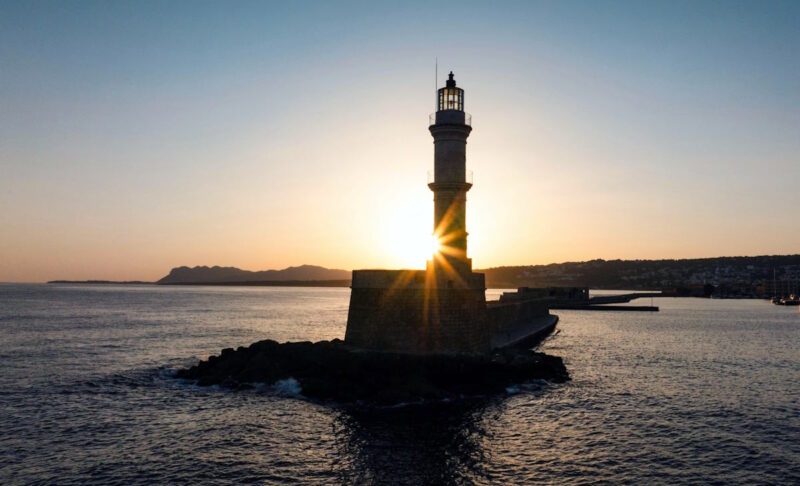The “sudden death” of thousands of short-term rentals on 1 October, and will permits for short-term rentals in Chania also be suspended?
The “sudden death” of thousands of short-term rentals
Starting 1 October, new regulations kick in for short-term rental properties like those on Airbnb. Owners have to register their accommodations as primary residences.
If they don’t, the system will automatically remove these properties from official rental listings and mark them as illegal. The idea is to get everyone in line with laws for managing short-term rentals a bit more effectively.
Authorities plan to run electronic checks to spot listings that don’t meet the registration criteria. Once they catch them, they’ll take these properties down from rental platforms.
The government says these rules will apply to every rental property that falls under the new regulations. No exceptions, apparently.
Key Takeways
- Short-term rental properties must be registered as primary residences to remain legal.
- Non-compliant properties will be automatically removed from rental platforms.
- The government will apply these rules uniformly across all affected listings.
The process for Airbnb management
From 1 October, authorities will start targeted inspections to check compliance with the new Airbnb rules. Joint teams from the Independent Authority for Public Revenue (AADE) and the Ministry of Tourism will handle these checks, sometimes together, sometimes separately.
Owners should get ready for these visits. They’ll receive official notice at least 10 days in advance, so there’s time to get documents in order and make sure everything’s legal.
Inspections can also happen if someone complains—maybe a neighbor, a guest, or anyone else who’s concerned. Any reported violation triggers an immediate investigation.
If inspectors find a violation, the owner faces a fixed fine of 5,000 euros per offence. That’s pretty steep, but it’s meant to make sure only authorized properties stay on the platforms.
Key points about the process include:
Step | Details |
|---|---|
Inspection notice | Given 10 days before the check |
Inspection teams | Mixed groups from AADE and Ministry of Tourism |
Inspections on complaint | Possible at any time following a report |
Penalty for violations | Fixed fine of 5,000 euros per offence |
Owners also have to make sure their property is properly registered as a primary residence. If not, the platform will remove the listing automatically. This move is supposed to crack down on illegitimate rentals and protect the housing market.
Conditions to be Met
From 1 October 2025, every property offered for short-term rental needs to meet specific requirements for safety, comfort, and legal standards. These cover the property’s structure, equipment, and paperwork.
Here’s what owners have to provide:
- Adequate main living areas: Rooms need enough natural light and ventilation for guests’ health.
- Heating and cooling systems: Air conditioning and heating in all main rooms, so guests aren’t freezing or boiling.
- Electrical safety measures: An RCD (Residual Current Device) must be installed to prevent electrical accidents.
- Fire safety equipment: Fire extinguishers and smoke detectors must be installed and maintained.
- Clear emergency exit signs: Escape routes have to be clearly marked.
- Certified electrical installation: An electrician needs to sign off on the safety of the wiring and installations.
- Liability insurance: Owners need valid public liability insurance in case something goes wrong during a guest’s stay.
- Pest control certification: Up-to-date certificates to prove pest control has been done.
- First aid supplies: A basic first aid kit must be available and easy to find.
- Emergency guidance: Guests should get printed or electronic instructions about what to do in an emergency.
Requirement | Purpose | Notes |
|---|---|---|
Natural light and ventilation | Comfort and health | Applies to all main rooms |
Heating and air conditioning | Temperature control | Must be operational in key areas |
RCD device | Electrical accident prevention | Legally mandatory |
Fire extinguishers & detectors | Early fire detection and response | Regular maintenance required |
Emergency exit signage | Safe evacuation | Must be clearly marked |
Electrician’s safety declaration | Assurance of electrical safety | To be renewed as per regulations |
Liability insurance | Coverage of guest-related risks | Includes property damage and injury |
Pest control certificates | Hygiene and health | Valid certificates only |
First aid kit | Immediate medical assistance | Standard kit contents advised |
Emergency instructions | Guest safety and information | Should be easy to understand |
If owners miss any of these, they could face penalties or lose their right to rent. It’s a good idea for property managers to regularly check compliance with updated regulations.
Penalties for Non-Compliance
Fines for breaking these rules go up with each offence in a 12-month period. Here’s how the penalties stack up:
Offence Number | Fine Amount |
|---|---|
First offence | €5,000 |
Second offence | €10,000 |
Third and subsequent offences | €20,000 |
All fines need to be paid within 15 days. If not, enforcement kicks in to collect the amount owed.
The government also plans to expand restrictions, which could affect more areas—especially those with a lot of short-term rentals like Airbnb. It seems they’re aiming for tighter control and better compliance in more regions.
Are Permits for Short-Term Rentals Also Frozen in Chania?

The government wants to keep the freeze on new permits for short-term rentals like Airbnb, and now they’re eyeing five more spots. After deciding to extend the ban in central Athens through 2026, they’re looking at Thessaloniki, Santorini, Chania, Paros, and Halkidiki.
These places have seen tourism demand skyrocket. It’s really shaken up the local housing markets in ways that feel, well, a bit out of control.
Lots of properties have switched from long-term rentals to short-term bookings. That shift has left residents scrambling to find permanent homes.
Rental prices? They’ve jumped about 20% in just two years. It’s not exactly surprising, but it stings if you’re trying to live there year-round.
Thessaloniki is starting to look a lot like Athens these days. Airbnb listings keep climbing, and the pool of homes for regular tenants keeps shrinking.
In Chania, local officials have called for action to protect the city’s character. People worry that the boom in short-term rentals is crowding out residents and changing the vibe of the community.
Santorini, Paros, and Halkidiki? Same story. Permanent residents there are having a tough time finding affordable places, thanks to so many homes getting snapped up for tourists.
Data from July 2025 says Greece has 245,944 Airbnb listings. That’s over a million beds—up by 57,000 from last year.
Occupancy rates hover around 51%, so demand isn’t letting up much. It’s a lot of properties, honestly.
Attica leads the pack, with nearly a third of all short-term rentals. South Aegean and Central Macedonia come next, each with about 26,000 units.
If you want more details on what’s happening in Chania, check out this short-term rentals permit update.
New Regulations on Short-Term Rentals – Housing Shortage in Chania and Other Areas

The government just rolled out new rules aimed at short-term rentals, especially in places like Chania where finding a place to live has become a nightmare for many locals.
They’re trying to calm down soaring rents and make more homes available for people who actually live and work there. The main idea? Fewer new short-term rental licences and a nudge toward longer leases.
If you own a property and want to list it on Airbnb or similar platforms, expect more hoops to jump through. The government froze new property registration numbers for short-term rentals until the end of 2026.
That freeze is meant to keep more homes from being snatched up for tourists, which should help stop rents from shooting up even further.
They’re also hitting short-term rental income with higher taxes. Depending on how much you make, you could pay anywhere from 9% to a hefty 44%.
Honestly, that tax hike might make some landlords think twice about sticking with short stays. Maybe longer-term tenants will seem more appealing now.
Key points of the new measures include:
- Freeze on new short-term rental registrations until the end of 2026
- Progressive taxation on rental income, starting at 9%
- Incentives for long-term rental agreements
- Stricter enforcement against unregistered short-term lets
Chania and similar hotspots are under huge pressure from the flood of tourists looking for a place to stay. Homes that used to be for locals are now mostly booked out to holidaymakers.
That shift means fewer options for residents and rents that just keep climbing. It’s tough out there if you’re trying to find a place to live year-round.
With these new controls, officials want to slow down the wave of homes moving into the short-term rental market. They’re hoping more owners will go for longer leases instead.
There’s a lot riding on this. Cities and towns all over are struggling with the same crunch.
The government says this is just one piece of a bigger plan to make housing more affordable. They want a fairer split between rentals for tourists and homes for the people who actually live there.
Not everyone’s thrilled, though. Some landlords are worried about their bottom line, while plenty of locals and community groups think these changes are long overdue.
Details are still rolling out, so property owners and renters should keep an eye out for updates. The rules are shifting, and everyone will probably need to tweak their plans a bit.
Want more info? Check out the new short-term rental rules and housing crisis page for the latest.




